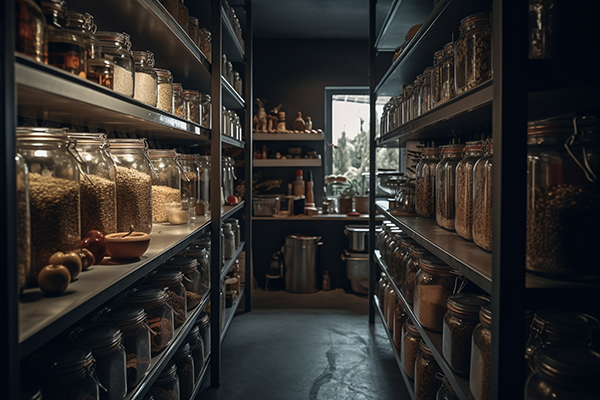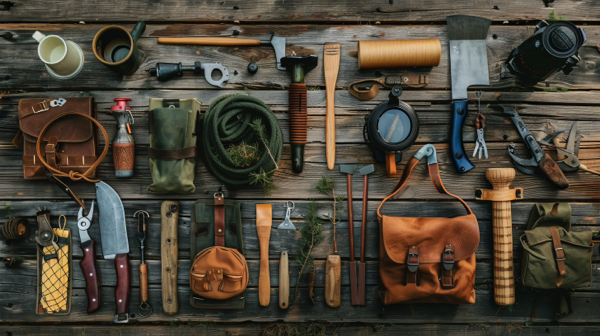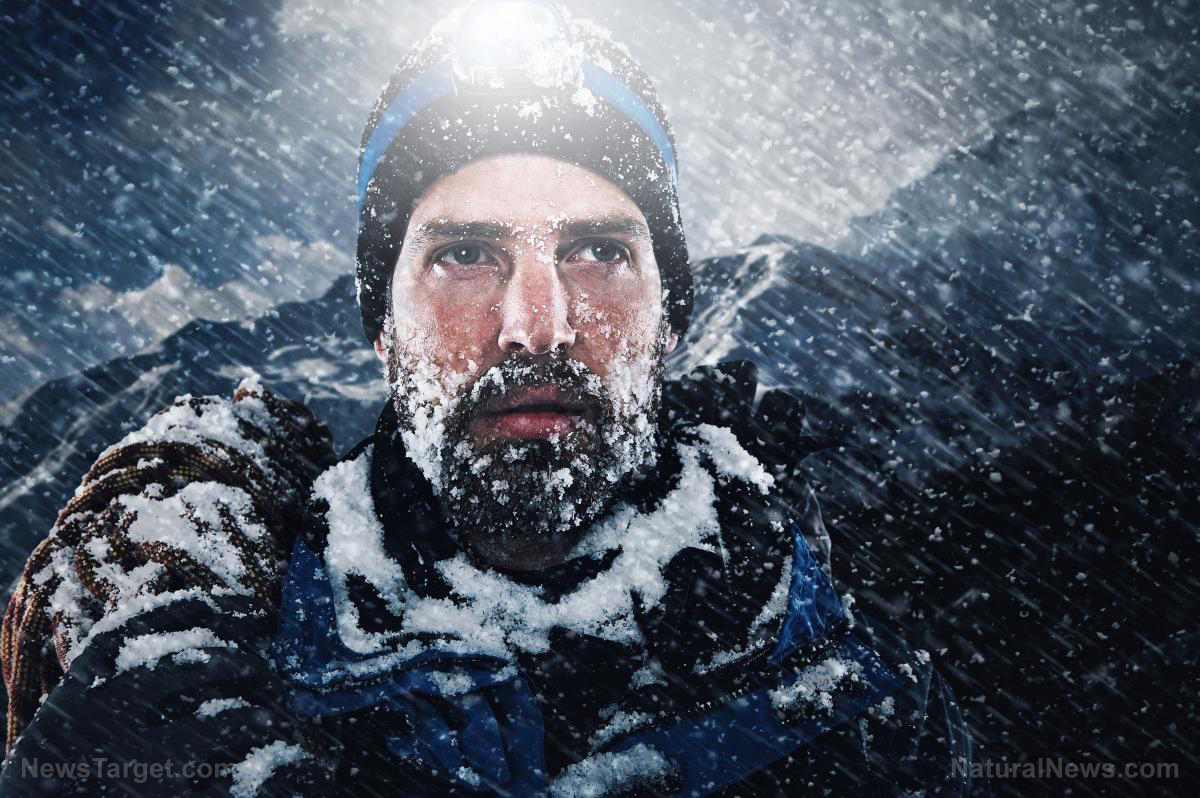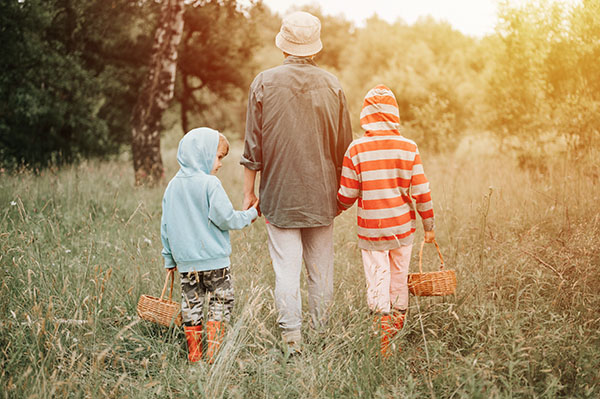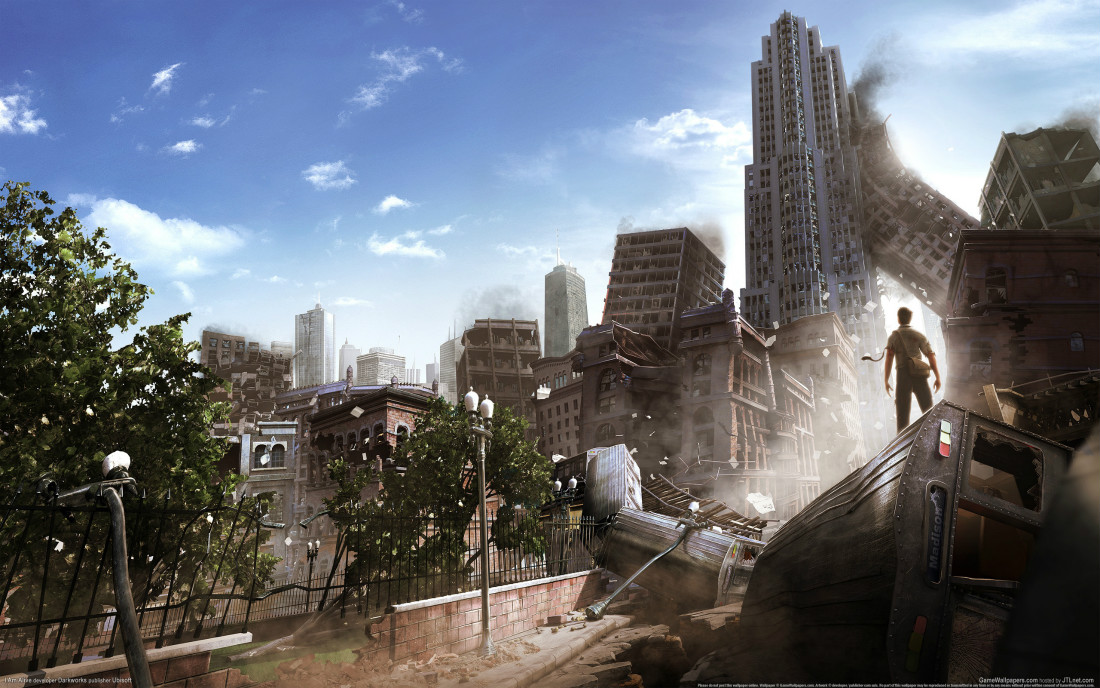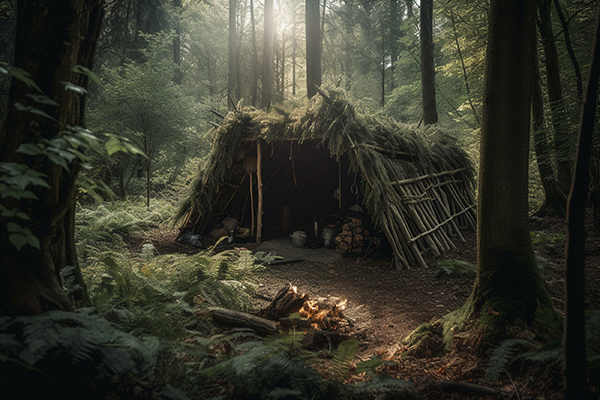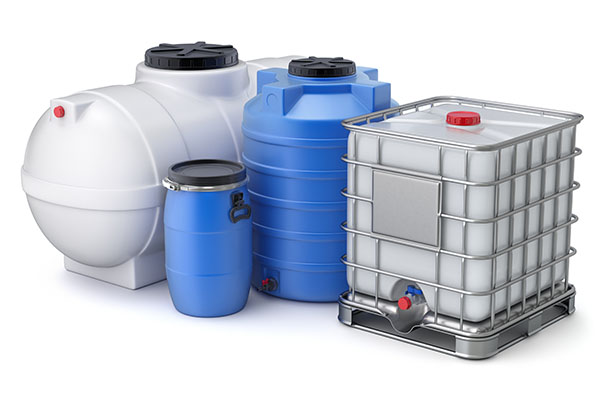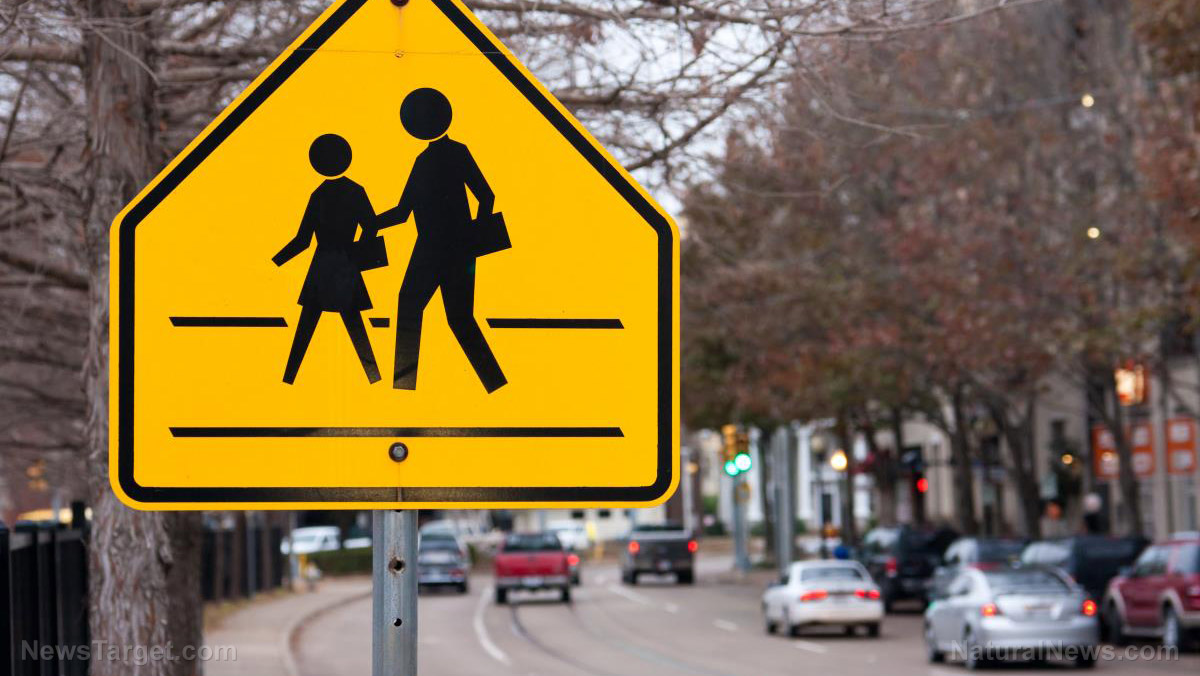Learning self-reliance: A survivalist’s guide to prepping alone
04/16/2025 / By Zoey Sky
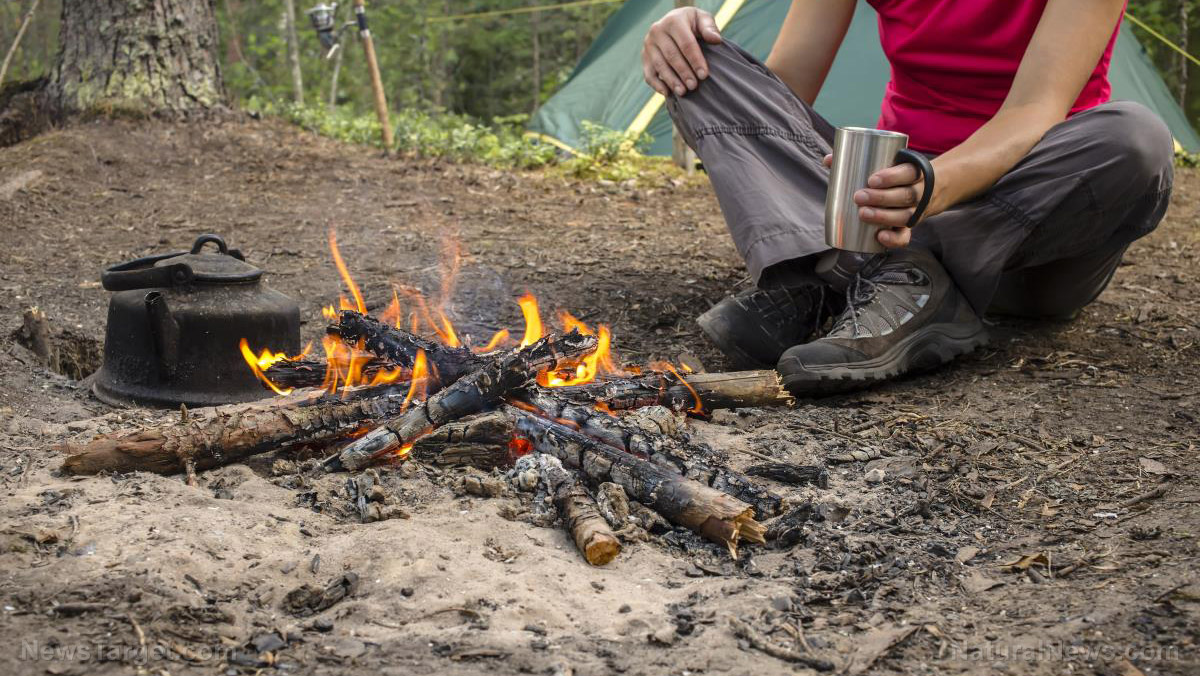
- Prepping alone means total self-reliance, which is empowering but also mentally taxing. Combat isolation by practicing solitude beforehand, staying connected with online prepper communities and focusing on small, achievable goals to avoid burnout.
- Prioritize nutrient-dense, long-lasting foods and rotate supplies to avoid waste. Store at least two weeks’ worth of water (one gallon/day) and learn multiple purification methods.
- Fortify your home with reinforced entry points, motion sensors and off-grid solutions. Have a backup bug-out location and train in self-defense since you need to protect yourself when SHTF.
- Learn critical skills like farming, fire-starting, navigation and first aid. Every skill you master increases your independence and reduces your survival burden.
- Celebrate small wins, avoid overthinking worst-case scenarios and pace yourself to prevent burnout. Stay informed and connected for support.
Prepping isn’t just about stockpiling food and weapons. It’s about cultivating resilience, independence and adaptability.
While many survivalists emphasize the strength of communities, prepping alone is a reality for countless individuals. Whether by choice or necessity, going solo in survival preparation comes with some unique challenges and rewards. If you’re flying solo when SHTF, here’s what you need to know. (h/t to PreppersWill.com)
The solo prepper mindset
Prepping alone means embracing an entirely self-reliant approach to survival. There’s no safety net and every decision, mistake and success rests on your shoulders.
This level of autonomy can be empowering, but it’s also mentally and emotionally demanding.
Independence vs. isolation
The allure of complete self-reliance is strong. You won’t have to deal with arguments over resources and conflicting survival strategies. You will also have control over your preparedness plan.
But isolation has a downside. Humans are social creatures by nature, and prolonged solitude can lead to loneliness, stress and burnout. (Related: Prepping – How to stay motivated when prepper burnout strikes during stressful times.)
During emergencies, it’s the isolation and loneliness that can make you lose hope. If you’re someone who is not used to being alone, being on your own can be one of the most difficult mental challenges you’ll face when disaster strikes.
If you are worried about this, spend some time alone to get used to it so you’ll be prepared when SHTF.
If you are worried about maintaining your mental health while solo prepping, try to stay connected virtually through prepping forums and communities. Doing this even remotely gives you a chance to build a network for knowledge-sharing without sacrificing independence.
You can also prioritize mental resilience through mindfulness, journaling and setting small, achievable goals.
Survival logistics for the lone wolf
Once you’re used to the isolation and mental stress that comes with living and prepping alone, here are some tips to help you stock up on survival essentials.
Food storage: quality over quantity
Stockpiling food is essential, but when you’re alone, you don’t need the same volume as a group.
Instead, focus on shelf-stable, nutrient-dense foods like freeze-dried meals, canned goods, nuts and seeds.
You should also have comfort items like coffee, chocolate or spices that can boost morale in high-stress situations. Lastly, follow a rotation system so you regularly check and replace expired items to avoid waste.
Water security
A solo prepper’s water needs are more manageable but just as critical.
Store at least two weeks’ worth of water or one gallon per day minimum. Have multiple purification methods, like boiling, water filters and purification tablets.
You should also learn about local water sources, like nearby streams. If possible, set up a rainwater collection at home so you have a backup water source.
Secure and low-maintenance shelter
Your shelter must be defensible, insulated and efficient because when disaster strikes, you’ll be handling everything yourself.
When it comes to home fortification, it’s crucial to reinforce entry points, install motion sensors and minimize visibility.
If you’re already living off-grid, consider investing in things like efficient heating and solar panels. You can also benefit from low-tech solutions like root cellars.
Don’t forget your backup plans. Secure a safe secondary bug-out location in case your primary home is compromised.
Self-defense: Non-negotiable for solo survival
If you’re prepping solo, you are your own security detail.
Stay safe when SHTF by prioritizing firearm proficiency if legally permitted. Train regularly so you can protect yourself and your property when needed.
Make sure you also practice how to use alternative weapons. Knives, pepper spray and improvised tools can be lifesavers if you don’t have access to primary firearms.
Familiarize yourself with stealth tactics. Minimize visibility, avoid unnecessary noise and use early warning systems like tripwires and alarms so you will be alerted immediately if there is a trespasser on your property.
Mastering critical skills
Being alone means there is no delegation.
You’ll need to cover important things like:
- Basic farming and foraging to supplement your stored food.
- Firestarting, even in wet conditions.
- Navigation using maps and a compass.
- First aid and basic medical knowledge, such as stopping bleeding and treating sprains.
Each survival skill you master lightens your survival burden.
The emotional side of solo prepping
Prepping alone isn’t just a physical and logistical challenge, it’s a psychological endurance test.
Staying mentally strong
Focus on immediate tasks can help you stay strong mentally. Try not to get overwhelmed by hypothetical disasters and focus on your current goals.
Before SHTF, practice solitude. Spend time alone to build resilience and learn how to enjoy your own company.
Always celebrate small wins, like securing supplies or learning a new skill. Acknowledge progress, no matter how big or small.
If you want to learn more as a prepper, try to remember that total self-reliance is a myth. Even the toughest survivalists have limits.
Seek a support network, no matter how small. Consult reliable information sources, such as trusted prepping resources.
Practice sustainable habits and avoid burnout by pacing yourself.
Silver linings of going solo
Despite the challenges, solo prepping has undeniable advantages. It gives you full control. You don’t have to compromise or settle group disputes.
You can adapt quickly and make changes to your plans without consulting others. You can also take pride in self-sufficiency. Be confident that every skill learned is a personal triumph.
Prepping alone isn’t easy, but it’s far from impossible. It demands discipline, foresight and emotional resilience. By focusing on core survival elements, like food, water, shelter and security, and maintaining mental fortitude, you can thrive independently.
Most importantly, you must remember you’re not truly alone. There’s a global community of preppers facing similar challenges. Stay informed, stay prepared and take it one step at a time.
Visit Mental.news for articles about how to support your mental health during stressful times. You can also visit Health Ranger Store and Brighteon Store for lab-verified products for your survival stockpile.
Watch this clip about the benefits of Bucket Food for nutrition and preparedness.
This video is from the Health Ranger Store channel on Brighteon.com.
More related stories:
How to remain calm in stressful situations.
Prepper essentials: Why bucket food is a game-changer for emergency preparedness.
7 Must-have multi-functional survival tools for every prepper.
5 Tips to manage the mental stress of prepping.
Sources include:
Submit a correction >>
Tagged Under:
burnout, disaster, emergency preparedness, homesteading, how-to, mental health, mind, off grid, preparedness, prepper, prepping, self-reliance, SHTF, solo prepping, stress management, survival, tips
This article may contain statements that reflect the opinion of the author
RECENT NEWS & ARTICLES
COPYRIGHT © 2017 OFFGRID NEWS

